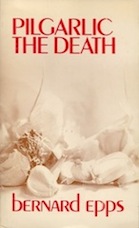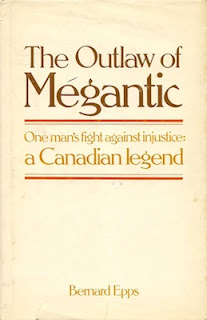CBC Books' 100 Novels list was as poorly conceived as it was presented. Writing here last July, I dismissed it as a grab bag of recent novels peppered with a few CanLit course mainstays. Given the claim that "everything from cultural impact and critical reception to reader response" was considered, I wondered how it could be that Anne of Green Gables and The Tin Flute were not included. There were other omissions, of course, but none nearly so glaring.
A week later, CBC Books issued a patch – CBC Books 100: Bonus 10* – featuring Anne of Green Gables, The Tin Flute and eight other recommendations "from passionate readers all over the world":
And so a decades-old debate comes to an end. You lose Mary Rubio. You too, Coral Ann Howels. Lives of Girls and Women isn't a novel, it's a collection of short stories. Yes, this list is reserved for novels only… except that they then added Farley Mowat's Never Cry Wolf.
CBC Books hasn't fixed that gaffe – not yet anyway. Nothing but silence has followed the end of that note on Munro:
Celebrate Alice by checking out all our coverage of her life and legacy and stay tuned – we may have more 100 lists up our sleeves.God, I hope not.
Now Radio-Canada, has weighed in with Les incontournables, 100 Canadian books to read once in your lifetime. (I suggest that at least once is what's meant). The best that can be said is that it's not as bad a list. Les incontournables shares all the faults of CBC Books' 100 Novels, but to lesser degrees. Where the former includes fourteen English-language titles, the latter has six in French. Those figures alone signal that neither list is to be taken seriously. Both share an even greater flaw in that they rely so heavily on recent works. Most of the titles found on the 2014 CBC Books list were published between 2000 and 2013. Yes, most…
Take a moment to let that sink in.
The new Radio-Canada list includes 41 titles published between 2000 and 2014 – including Jean-François Lépine's Sur la ligne de feu, which was released all of seven months ago. To borrow from Jean-Louis Lessard's comments on Les incontournables, il faut laisser le temps faire son oeuvre.
Has it all been worth it? Yes and no. CBC Books' 100 Novels was meant to "start a dialogue", but the only comments I heard were from friends who expressed surprise at how few they'd read. Les incontournables, on the other hand, seems to have inspired M Lessard to produce Liste des œuvres québécoises importants. His criteria: the quality of the work, cultural or social impact, the representativeness of the time and influence. It's about as perfect and well-considered as any book list I've ever seen; anyone looking to read the essential works of French-speaking Quebec will find no better.
An observation and query to close this rant: Where Les incontournables includes titles that are out of print, all of CBC Books' 100 Novels – including the Bonus 10 – are in print. Surely this isn't a coincidence. And what are we to make of the fact that nearly every one is currently published by a foreign-owned house?
McClelland & Stewart is owned by Bertelsmann. The CBC is in decline. Suddenly, I'm not feeling so proud.
* Curiously, the list itself was rebranded as "CBC Books 100: Novels that make you proud to be Canadian".
Related posts:





























